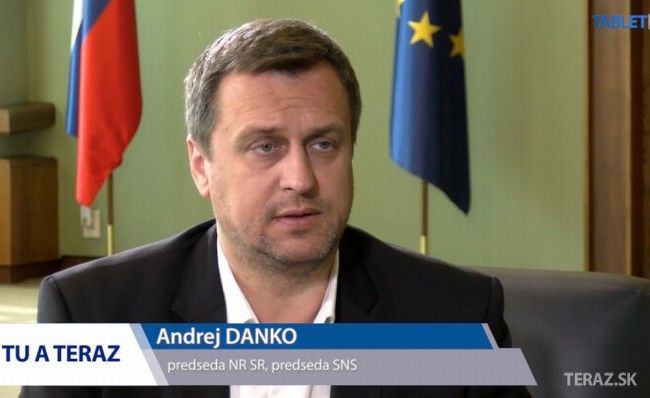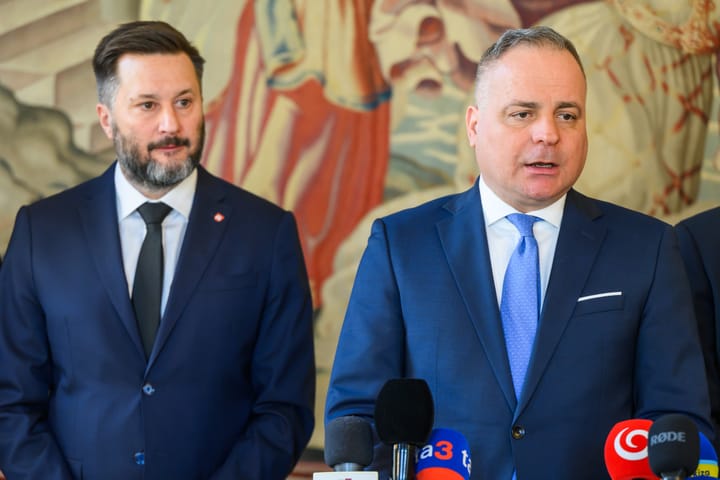Danko: Elections, Not Revolutions, Serve to Replace Governments

Bratislava, May 17 (TASR) – Initiatives aimed at inciting disputes and strong sentiments and thus, ultimately, at cutting the term of a government short prematurely aren’t specifically Slovak initiatives, but in democratic countries such actions result in no benefits, said Parliamentary Chairman and Slovak National Party (SNS) leader Andrej Danko on a TABLET.TV discussion show on Wednesday.
“We’re not the only country to have to deal with it. Every country has rebel groups that would love to topple the government by unleashing a revolution. We must explain to the public that governments are replaced via elections,” he said.
Political parties are currently in a state of crisis, said Danko. While well-established parties have become detached from ordinary people, new leaders are trying to make their way into their positions but, rather than well-functioning parties, what they offer to voters is marketing products and advertisements on social media.
“They’re parties with closed membership, where the leaders lock themselves in, incite emotions, and aim for revolutions to replace every government. In advanced parliamentary democracies every political party realises that it has to have its sights set on a parliamentary election,” he said.
With this in mind, Danko singled out as his political priorities not only the ministries run by SNS nominees, but also Parliament’s Rules of Procedure and the law on political parties.
“I’m a lawyer, I like systemic measures and rules. I viewed Parliament’s Rules of Procedure as one of the main pillars of the functioning of Parliament and the state that needed to be changed. And I’m sure that this has been accomplished,” he said.
In this connection, he also signalled a piece of legislation amending the act on political parties, which he’s seeking to have tabled in Parliament in September. This law has been precipitated by the high number of political parties and will aim to ensure competition between parties while preventing situations in which a party is set up at the initiative of a single person, “who then blocks the party and uses funding from the state for advertisements in an affiliated paper”.
Danko also rejected the practice of not admitting members, as pursued by the four-member OLaNO party.
“People have the right to assemble, they mustn’t be told to be mere ‘friends of a party’. Such an arrangement may be in place for some period of time, but when somebody wants to become a party member, they must be allowed to do so, as this is what the party receives state funding for,” he said.
“This bill isn’t targeted against anybody, it’s in favour of order. In the absence of order, the state won’t work. How can the leader of an Opposition party who’s unable to look a large number of people at a party congress in the eye govern a country?” he said.
Meanwhile, Danko also touched on the recent controversy surrounding the reported opening and reading of letters intended for MPs by the Parliament Office. It’s been common practice and a standard procedure for many years that post received by the Parliament Office that is deemed to pose a potential security risk is opened, he said, emphasising that the same procedure applies to both Coalition and Opposition legislators.



